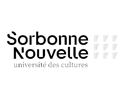The Americas under an interconnected perspective: people, practices and knowledge
Coordination : Olivier Compagnon, Associate Prof. and David Dumoulin, Associate Prof.
This research area ideally follows the works conducted between 2007 and 2011 by the CREDA research Area: “The triangle: Latin America-Europe-North America: circulation of knowledge and cultural practices”. This research theme focuses on the multiple connections between the Americas and the rest of the world and aims at encouraging important reflections on the “circulation of knowledge” between these continents.
Geographic transformations
In line with the “Ida” multidisciplinary project, the first challenge of this research area is to strengthen the inter-American or “hemispheric” dimension of our study, by leveraging on the important number of CREDA’s on-going works, e.g. those conducted by ML Geoffray on “electronic contestation” cultures linking the Caribbeans – most notably Cuba – to the USA, or those carried out by Diana Senior Angulo (PhD candidate) on the United States’ experience on constructive Afro-American citizenship in central America during the second half of XX century. From a theoretical perspective these works will allow to test the hypothesis of a social sciences hemispheric area and to (re)consider the concept of cultural space.
On the other end, unlike research activities previously conducted in the laboratory, this area deliberately adopt a global perspective. Hence the importance given to specific studies, e.g. those regarding Chinese migrations to the Americas (carried out by Isabelle Lausent-Herrera), or new authoritarianisms within contemporary democracies – such as in Honduras, Mali, Paraguay or some Eastern European countries - led by Renée Fregosi, or those more recent on the African dimension of Venezuela foreign policy since the late 1990s, conducted by Camille Forite (PhD candidate).
Special attention will be given to interrelations existing within the same Latin-American region, be it about recent migration flows to fast-growing countries or more ancient migrations that have contributed to the creation of interconnected spaces (see the project: ANR LANGAS on languages, directed by Capucine Boidin, or the thesis in history by Hélène Veber PhD thesis in history about Argentina-Brazil-Chili 1910 Treaty).
Social transformations
Beyond the horizontal dimension of “circulation” phenomena unifying differing spaces, the works of this research area will devote major attention to the circulation of practices and know-how among social categories, following a vertical approach. In the same way as circulations do not only occur spatially (i.e. from supposed “centres” towards “peripheries”, for they follow complex logics of “to-and-fro” - see works by Olivier Compagnon on transatlantic circulation in the Catholic world of XX century), circulations of practices and know-how of experts and elites need be analysed in terms of their capacity to reach out for society. Likewise this research area focuses on the analysis of bottom-up movements facilitating the legitimating of practices and know-how initially marginalised (see PhD in history by Manuel Rodriguez on the reconfigurations of 1920 Rio de Janeiro’s urban cultures).
As demonstrated by David Dumoulin’s works on the construction of scientific know-how and the “turistification” of some Latin-American regions, it is recommended to combine the social perspective of circulation dynamics with the spatial approach. On other terms, concurrently reason in terms of horizontal and vertical dimension to better render the complexity of such phenomena, while looking at theoretical tools to appreciate the social pervasiveness of practices and know-how, well beyond traditional visions such as that of “social capillarity”.
References
• Bertrand Romain, L’histoire à parts égales. Récits d’une rencontre Orient-Occident (XVIe-XVIIe siècles), Paris, Seuil, 2011.
• Boschetti Anna (dir.), L’espace culturel transnational, Paris, Nouveau Monde Editions, 2011.
• Dezalay Yves, Garth Bryant, La mondialisation des guerres de palais. La restructuration du pouvoir d’Etat en Amérique latine entre notables du droit et "Chicago boys", Paris, Le Seuil, 2002
• FAIST Thomas, The volume and dynamics of international migration and transnational social spaces, Oxford, Oxford University Press, 2000.
• GRUZINSKI Serge, Les quatre parties du monde. Histoire d’une mondialisation, Paris, La Martinière, 2004.
• HASSENTEUFEL Patrick, « De la comparaison internationale à la comparaison transnationale. Les déplacements de la construction d'objets comparatifs en matière de politiques publiques », Revue Française de Science Politique (Paris), vol. 56, n°1, 2005, p.113-132.
• IRIYE Akira, Global community. The rôle of international organizations in the making of the contemporary world, Berkeley, California University Press, 2002.
• IRIYE Akira, SAUNIER Pierre-Yves (éd.), The Palgrave Dictionary of Transnational History, Basingstoke, Palgrave / Macmillan, 2009.
• KHAGRAM Sanjeev, LEVITT Peggy, The transnational studies reader : intersections and innovations, Londres / New York, Routledge, 2008.
• LATOUR Bruno, Changer de société – Refaire de la sociologie, Paris, La Découverte, 2006.
• RAJ Kapil, Relocating Modern Science : circulation and the construction of knowledge in South Asia and Europe, 1650-1900, Houndmills, Palgrave Macmillan, 2007.
• SAUNIER Pierre-Yves, « Circulations, connexions et espaces transnationaux », Genèses (Paris), n°57, 2004 / 4, p. 110-126.
• STONE Diane and Simon MAXWELL (éd.), The Challenge of Transnational Knowledge Networks : Bridging Research and Policy in A Globalising World, Londres, Routledge, 2004.
• URRY John, Sociology beyond societies : mobilities for the twenty-first century , Londres / New York, Routledge, 2000.





